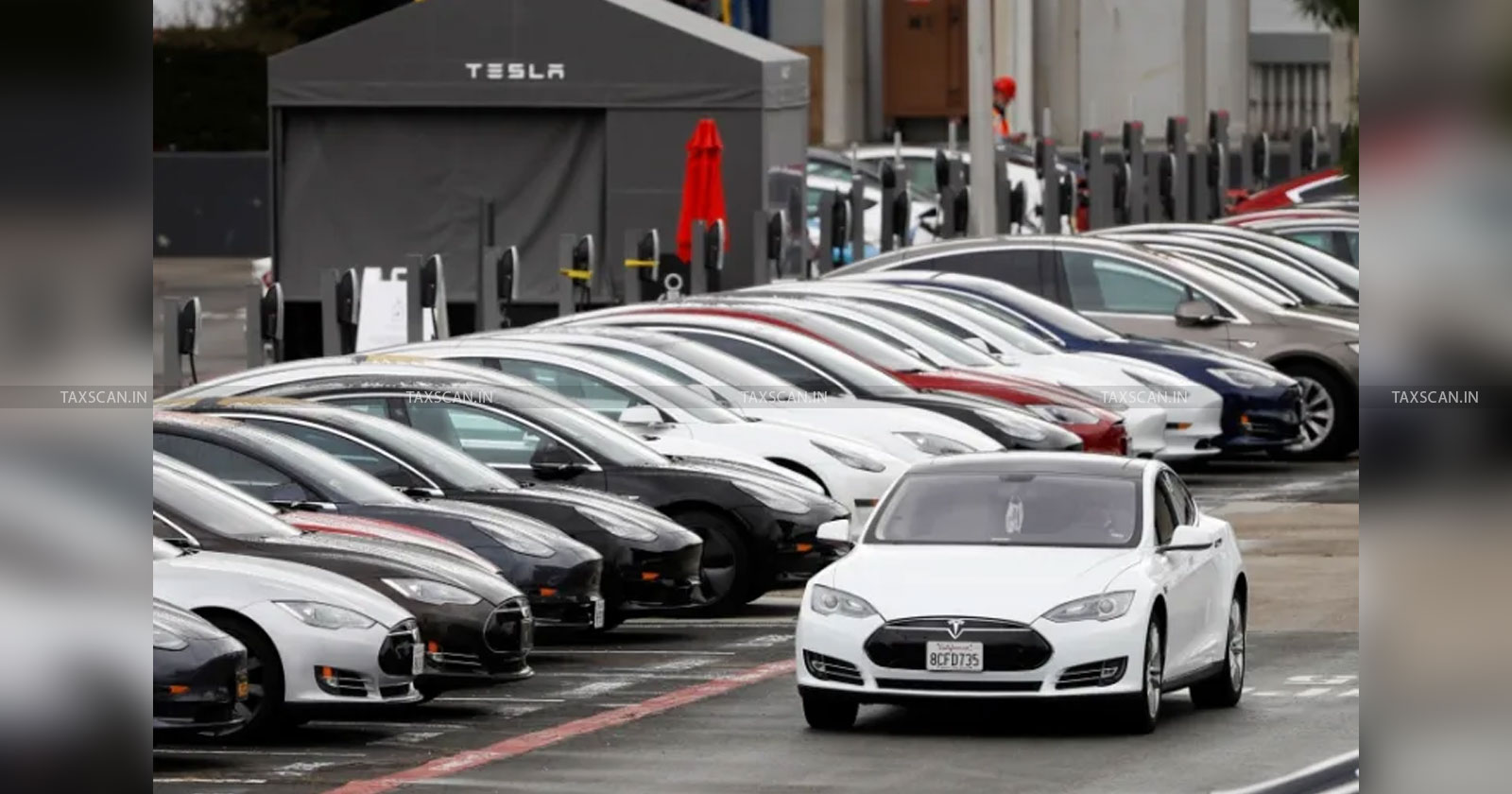India Mulls Tax Reductions on Fully Assembled Electric Cars to attract Tesla and Other EV manufacturers

Mulls Tax Reductions – Tax Reductions – Reductions – Electric Cars – taxscan
Mulls Tax Reductions – Tax Reductions – Reductions – Electric Cars – taxscan
The Indian government is actively exploring the prospect of implementing tax reductions on fully assembled electric vehicles (EVs) imported into the country for a duration of up to five years. This strategic initiative is aimed at enticing global companies, notably Tesla, not only to sell but also potentially to manufacture their electric cars within India.
As part of the government's overarching plan, an Electric Vehicle (EV) policy is being devised to facilitate global automakers in importing electric vehicles at reduced duty rates. The condition for availing these reduced rates is that the companies commit to establishing manufacturing facilities for EVs in India. According to the reports from Bloomberg, this policy is intended to make India a more attractive destination for global electric car manufacturers.
In 2021, Tesla actively sought a reduction in import duties for its EVs. The company aimed to bring down the existing duty rates, ranging from 70% to 100%, to 40%, contingent upon the import value of its vehicles.
Tesla's CEO, Elon Musk, is anticipated to meet with India's Commerce and Industry Minister, Piyush Goyal, in the coming week to discuss the company's plans for establishing a manufacturing facility in India. Minister Goyal is presently in San Francisco for ministerial engagements related to economic frameworks in the Indo-Pacific and Asia-Pacific regions.
Tesla's keen interest in entering the Indian market aligns with the country's burgeoning demand for EVs, particularly among the expanding middle class. Simultaneously, Tesla's potential investment holds the promise of advancing the government's agenda to enhance manufacturing's contribution to India's GDP and create employment opportunities. The ongoing discussions underscore the collaborative efforts between the Indian government and global companies to bolster the electric vehicle sector and contribute to the country's economic growth.
Brief about Electric Vehicles
In the latter half of the 20th century, various starts and stops in the electric vehicle industry showcased the potential of the technology. However, the real resurgence of electric vehicles happened around the beginning of the 21st century. There are two events that people often point to as sparking the current interest in electric vehicles.
The first crucial moment was the launch of the Toyota Prius. It hit the Japanese market in 1997, making it the world's first widely available hybrid electric vehicle. In 2000, the Prius became available globally, gaining instant popularity, especially among celebrities, which significantly boosted its reputation.
(Historical footnote: Before the Prius could be introduced in the U.S., Honda released the Insight hybrid in 1999, making it the first hybrid sold in the U.S. since the early 1900s.)
Tesla and other EV Manufacturers Entry
In 2006 when a small Silicon Valley startup, Tesla Motors, announced its plans to manufacture a luxury electric sports car with a range exceeding 200 miles on a single charge. In 2010, Tesla secured a $465 million loan from the US government, a loan that Tesla fully repaid nine years ahead of schedule, to establish a manufacturing facility in California. Since then, Tesla has gained widespread acclaim for its cars and has become the largest employer in California's auto industry.
Tesla's announcement and subsequent success motivated major automakers to expedite their efforts in developing electric vehicles. In late 2010, both the Chevy Volt and the Nissan LEAF were introduced to the U.S. market. The Volt, the first commercially available plug-in hybrid, features a gasoline engine that supplements its electric drive once the battery is depleted, allowing users to drive electrically for most trips and use gasoline to extend the vehicle’s range. On the other hand, the LEAF is an all-electric vehicle, commonly referred to as a battery-electric vehicle or simply an EV, meaning it relies solely on an electric motor for power.
Support our journalism by subscribing to Taxscan premium. Follow us on Telegram for quick updates


